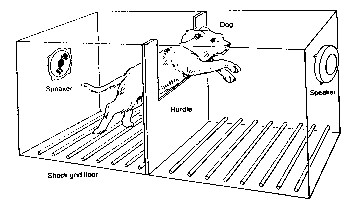
Santa Clara Meditation Science – 5 Steps On How to Overcome Lack Of Motivation; Finding It With Mind Discarding
“Well, it won’t work anyway if I do it…”
Why do I have these thoughts? I had a moment when these thoughts made me look back on myself. About a month ago, I found out there was a promotional contest to win a free item. It was an item I always liked so I was interested in it, but the application was confusing and soon, I had these thoughts in my mind.
“Will I really win? I won’t get it anyway… I should just forget instead of wasting my time. How annoying…” And I went straight into lazy mode. But one of my co-workers did not get annoyed with the application and filled it out. The result? Not long after, to my co-worker via UPS. Ta-da~ The moment the item was delivered… I cried. I should have tried too.

Lack of motivation, that mind, comes from experiences retained from the past.
That day, I went to the meditation center, tried mind discarding and looked back on my day. I also work as a blogger. There were things that I thought would work out and they resulted well, but also the small things in life, will it work? It probably won’t work anyway… I had a lot of moments when I had given up like that.
Times when I was about to help somebody and then hesitated, “well, that person probably won’t like it anyway… that’s ok… I don’t feel like it…”. Instances of needing further conversation due to conflicts in opinion but “well… that person is stubborn anyway… I don’t feel like talking to them…” and giving up. Lack of motivation and negative thoughts made me see-saw between decisions.
Why am I like that? Looking back on myself, usually those instances I had negative experiences and results.
No matter how simple it was, I was never able to win an event. Doing something for someone but later finding out they didn’t like it. Attempting to have a conversation with someone but lacking in understanding so giving up on the conversation.
Those minds stacked up so “it won’t matter even if I do it” type of negative minds formed. And whenever those specific situations arose, I would think it would be better not to do them and lack motivation.
“Learned Helplessness” finding the cause by Martin Seligman’s research
Lack of motivation formed from previous experiences, this is termed “learned helplessness”. The first time this was discovered was by positive psychologist Martin Seligman. In 1967, by chance, he used dogs to conclude that “dog’s pain is shown with escape behavior”. This is the research study that made him a star. (From Journal of Experimental Psychology in 1967 “Failure to Escape Traumatic Shock”.)
The summary of the research: he took 24 dogs and divided them up into 3 groups and put each group into a box. On the bottom of the box was an electric shocker. The groups were divided as such.

Group A (escape group): the dogs would receive a shock but, if they pressed a button with their nose, the shock would turn off.
Group B (no control of situation group): the dogs would receive a shock but they would be tied so they could not escape or stop the shock.
Group C (control group): the dogs would not receive a shock.
What difference do you think was seen between the dogs who were able to escape the shock through their own will and those who were not? Next, another study was done.
After the first step, 24 hours later the dogs would be moved to a different box and would be shocked.
Now, the situation was different. In the middle of the box, there was a short fence. If the dog just jumped over the fence, then any dog could avoid the shock. But how do you think the dogs acted?

Group A dogs who noticed that when they acted on their own will, they had a change in environment, all of those dogs succeeded in jumping the fence to safety.
But Group B dogs who were never able to escape no matter how hard they tried, they never even bothered to think of jumping the fence in this new box. Out of the 8 dogs in Group B, only 2 dogs attempted to escape.
Group C who has no past trauma of course, jumped the fence to safety without any difficulty.
Do only dogs have learned helplessness? What about people? Donald Hiroto’s research
Group B dogs, if they made an effort could still escape, but they would just sit slumped in the corner receiving the shock. In the past, even if I make an effort, it won’t work. That experience was holding down the dogs.
Are dogs only like this? What about people?
Psychologist Donald Hiroto did the same research on people. And the results were the same. No matter how hard one tries if that person has experienced failure, then afterwards, that person will lack the motivation to try.
Through these research studies by these psychologists, it shows that no matter how difficult the situation may be, don’t give up on yourself. Giving up means it is the mind made from the past experience of failure. Just because you failed back then doesn’t mean you will fail now.
Even though these research studies have not occurred, if you look back, there are many times of learned helplessness.
Regarding a certain person: well, it won’t matter what I say to him, he won’t listen…
Regarding my work: what’s the point in doing this work when there won’t be any results…
Regarding my workplace: anyway my workplace won’t change, I might as well just stare off into space and then leave…
Dieting, quitting smoking, new year resolutions: last year, the year before last I failed, what are my chances of succeeding this year?
5 steps to recover from my learned helplessness
Everything can be blocked by my learned helplessness. The deeper it gets, the more I lack motivation and get into a lazy slump.
So then how can I recover from this unmotivated state? By doing meditation, there have been many people who have recovered from this same unmotivated state.

1st step: don’t be fooled by this learned helplessness
“Even if I do it, it won’t work” when that mind occurs, you cannot be fooled by your brain. Um… am I being fooled? You must be aware of this.
Group B (no control of situation group). If those dogs knew “I am currently being fooled by my brain”, what do you think they would have done? Just like the dogs in the other groups, these dogs would have jumped the fence.
In the first step, my past experiences (= pictures = brain), don’t be fooled by it and stand your ground to be determined to recover.
2nd step: look back on the experiences that formed this learned helplessness
So, will it simply be solved by thinking “Everything will turn out well” “I can do it” type of positive minds?
Because the minds made from past experiences are strong, you need to know exactly what the cause is to recover, otherwise, it is difficult to do. Even if you think positively “oh I should do this”, you have no choice but to fall back into the learned helplessness pattern due to your past experiences. So that is why you must know why this learned helplessness formed in the first place and look at it one by one. And find out why did you fail back then.
3rd step: throw away the minds that have become the root cause
As you do this Ma-Eum Su-Ryun meditation, look back on those remembered thoughts, later you will realize something. Even though these seem real, actually, it is pictures that you took in your mind at that time. That picture is not real and when you truly throw it away, it disappears.
4th step: take little steps at a time and take a different approach to it
Now it is a new start. But if you act the same way as you did when you failed in the past, you can get the same failed results. For example, I mentioned how I never won those promotional events. But looking back, I never had any sincerity. My co-worker who won the event did research into the event to see what was needed and tried to meet those requirements. So if I want to win that event, then I need to find out what is required and meet those requirements.
And if talking to someone leaves you frustrated due to lack of communication, it is because ‘I am trying to converse in my own fashion’. Think about “How can I communicate to that person so he/she can hear?” and follow his/her needs in order to have progress in your conversation.
5th step: take small positive experiences and slowly build them up
If failed experiences have made me lose motivation, now small positive wins must be made. In this step, it is not about difficult goals from the beginning, but rather easy goals must be chosen first.
For example, if exercising daily was my new year’s resolution but I have always failed. At first make small goals as your endpoint. 3 days of daily exercise. After having those small winning experiences, slowly you can increase your goals.
As you repeat these 5 steps, at some point you will notice that you have escaped from the learned helplessness and lack of motivation and your life’s achievements are higher and can be met without fail.
Have you heard of the adult elephant quietly sitting tied to a small stake? All the elephant needs to do is move a little and the stake will come out and the elephant will be free. But this elephant as a child was tied to the stake. So the elephant doesn’t even have the thought that it can escape from the stake.
But when the elephant by chance moves in such a way to pull out the stake, then the elephant will know.
Ah… I can do it too. All I had to do was move to get this stake to pull out.
Stories of people who recovered from their learned helplessness through meditation.
The cause of my depression was from my lived life
KookHwa 23 yrs old, level 1, Korea
After graduating college, the amount of stress built up was so much that, where before graduating, I had a lot of energy and motivation, but that disappeared afterwards, and I felt different from before.
I had a lot of anger, depression, lack of motivation… just daily life was difficult. I thought I only needed to think positively but my depression only got worse. During that time, I happened upon Ma-Eum Su-Ryun meditation. This depression, lack of motivation, anger was all coming from my lived life. As I lived, I took pictures of my life lived and stacked them up. This was making it difficult for me. And as I threw them away one by one, my mind became peaceful. And as time passed, I noticed myself changing.
I changed into a positive person
Jin NamHae 37 yrs old, level 1, Korea
For the last 37 years of my life, I lived without thinking. As I aged, I felt the need to have more and more and the pressure of those desires along with the psychological and physical stressors of work made me feel numb and unmotivated.
A life of no love and feeling only torment… I felt that this needed to stop and remembered a book I read about discarding mind. Without hesitation, I searched online, registered, and attended the program. This small bravery brought about a big change in my heart.
I had always been negative and could only see the negative in life. But as each day passed, seeing the people around me at the program becoming brighter and lighter expressions as well as feeling their positive energy, I also followed along and changed into a positive person. Now it has become a time for self meditation, to look back on myself.
Santa Clara Meditation Science – 5 Steps On How to Overcome Lack Of Motivation; Finding It With Mind Discarding
https://santaclarameditation.blogspot.com/2019/11/santa-clara-meditation-blog-5-steps-on.html
Source: Meditationusa.org
Santa Clara Meditation Science – 5 Steps On How to Overcome Lack Of Motivation; Finding It With Mind Discarding

